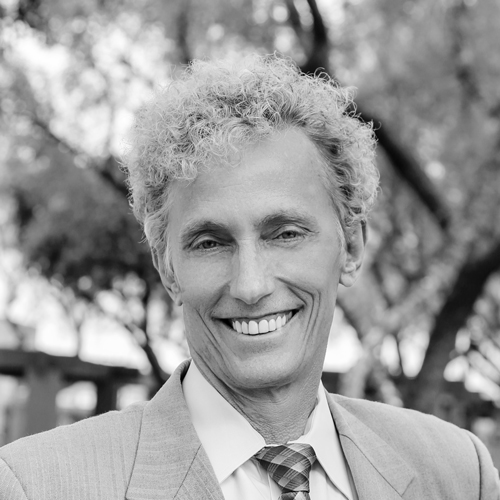Before he joined LEGO Systems Inc., R. Scott Slifka worked for an insurance company, and he remembers the looks he received when he answered the question, “What do you do?”
“Their eyes glazed over, and they would go find other people to talk to,” Slifka recalls with a laugh.
Since joining LEGO in 2009, however, those glazed eyes now go wide with wonder when he answers the same question. “They smile or say, ‘That’s so cool,’” Slifka says. “Especially with kids—I’m like a rock star wherever I go. There really is something about working at a place that elicits that response. It’s very inspiring and affects your day-to-day work.”
As senior director and general counsel to the Americas—a territory that includes Canada, the United States, Mexico, and all countries in Latin America—Slifka’s day-to-day workload is almost always a full plate. In addition to protecting intellectual property (IP) for one of the most recognized toy brands in the world, he’s also charged with protecting the more than eighty-five-year-old company that was named by Brand Finance in 2015 as “the world’s most powerful brand.”
LEGO bricks have spawned countless imitators, but when you consider that the franchise has blossomed to include movies, TV shows, online games and programming, as well as other merchandise, protecting IP and the name itself is a nonstop task. As Slifka explains, the bigger the company becomes, the bigger of a target it becomes for competitors and copycats.
Think of the Brand as a Public Asset
“To me, LEGO is like a public trust,” Slifka says. “When you’re dealing with something that so many people around the world identify with and believe in as a force of good, it puts you at a higher level of responsibility in protecting the brand—particularly in a children’s world. Our job is to inspire and develop the builders of tomorrow. That carries with it all sorts of regulatory and other social responsibilities.”
In terms of social responsibility, Slifka points out that the Christiansen family, who founded the company in 1932, still play a major role in the company’s efforts. That includes investing in wind power to reduce the company’s carbon footprint and working to develop new, sustainable materials for its plastic bricks and packaging materials.
In terms of continuing to spread the brand throughout the world, Slifka says LEGO works tirelessly to ensure that it finds partners that not only share the company’s values of brand protection and childhood enrichment, but can also reinforce LEGO’s longstanding commitment to product and business integrity. Slifka was part of a team that helped set up operations for the company in Brazil. He refers to it as one of the most rewarding experiences he’s had as part of the LEGO family.
“With every country you go to, you have to work very hard to ensure you get the right people and put the right processes in place to make sure LEGO’s values are adhered to,” he says. “The further you get away from your home base, the bigger the challenge it is. Brazil did business in a very different way. I never worked in a start-up, but that experience had that vibe and to see the excitement of people having LEGO in Brazil was something I’ll never forget.”
Put Prior Experience Into Practice
Whether crossing international or political lines to achieve goals, Slifka is well-versed in being someone that can bring people together. He served as mayor for the town of West Hartford, Connecticut, for twelve years—some of which overlapped with his time at LEGO.
“On one hand, you think the two roles have nothing in common. But as mayor, I was protecting the public trust of my city,” Slifka says. “That’s a lens through which I viewed every decision. I come to LEGO—a toy company and not a government entity—but having protection of public trust as your number one goal is something they do have in common.”
Besides that goal, Slifka says his twelve years being in West Hartford and having to carryout tough decisions makes him particularly sympathetic to the demands on his bosses at LEGO.
“You have to be someone who deals with public policy and is subject to public scrutiny every day as mayor,” Slifka explains. “Most lawyers don’t get that experience. I understand that perspective. It’s empowering to know that you can provide advice, but also sit on the other end and take the heat once a decision is made. It’s helped make my judgment better.”
Don’t Look for the Easy Solution
Nevertheless, Slifka notes that tough judgment calls aren’t particularly commonplace at LEGO. He says where most other companies might seek shortcuts to protect or bolster their bottom-line, that isn’t the culture at LEGO. If a solution means spending more but protecting the safety of children and the worldwide brand’s reputation, then that is always the direction the company takes.
“You’re not just protecting a corporation. You’re protecting a movement and a way of life,” Slifka explains. “I feel an extra level of responsibility in this role, and it’s comforting to know that your management and the family ownership backs up that ethos.”
It’s also why LEGO places a premium on the personality of the people it hires. Slifka says his interview process was one of the most thorough processes he’s ever experienced, and the phrase “LEGO over ego” is never far from mind.
“By and large you will truly like the people you work with,” he says. “They’re good people who believe in the brand and are not just looking out for themselves. These are people who have passion for the brand and the mission of the company beyond what you find at other places. Some of us are big fans of LEGO products, but I would say that most of us weren’t super-fans coming into the job. You certainly develop that fandom through working here.”
Photo: Abigail Albair/West Hartford Press

